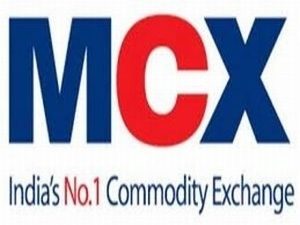Multi Commodity Exchange of India Ltd (MCX) BSE: 534091, NSE: MCX), the nation’s biggest commodity exchange, reported the launch of Brass future contract at an event planned in Jamnagar (Gujarat). As there is no referenceable global or domestic benchmark for brass prices as of now, this agreement will encourage brass manufacturers to fence their value chance.
The exchange, will start futures trading in brass on Monday, March 26, 2018, marking the first time that a Brass Futures contract will be traded on an organised exchange across the planet. Brass futures will not only provide its stakeholders with a more organised and robust price discovery platform, but will also help them to use a national level benchmark price as a ready reference to enable them to overcome their price risk.
Three contracts finishing off with April, May and June 2018 will be accessible for exchanging. The part size of the agreement is 1 MT (metric ton). Fundamentally, MCX Brass futures is the main non-ferrous contract with obligatory conveyance choice. The cost is cited ex-distribution center Jamnagar (premise focus) comprehensive of expenses and obligations, barring GST. The ingots and billets are of IS-319 review. Mr. Mrugank Paranjape, MD and CEO, MCX stated, “The launch of brass futures contract reaffirms MCX’s spearheading way to deal with planning items that serve the dynamic needs of market participants. The agreement will prompt best value disclosure for brass, which is of key significance to its partners including shippers, exporters, producers, refiners, and processors among others in the nation, who are hoping to fence their value presentation. The activity augments MCX’s arrangement of brass tradings, as well as intelligent of our sense of duty regarding the development of item subordinates in India.”
Shri Tulsibhai Gajera, President, Jamnagar Factory Owners Association, and Jamnagar Chamber of Commerce and Industry stated, “Nearly the entire scrap and waste for making brass gets transported in into India, yet the merchants don’t know on the cost until the point when the brass shipments arrives in the nation. In addition, the ingots and billets creators who purchase scrap are never certain at what value they will get it. Lastly, the item makers who want to have settled information cost of ingots and billets too have unusual business edges.”
“By and by, the whole esteem fasten can’t land at a solitary brass cost, yet with the presentation of the world’s first brass contract, MCX would provide a price discovery platform to the physical market participants and thus the brass value chain would get a single price to benchmark and hedge their risk exposure “, he added.
Brass is an alloy,which primarily contains around 55-60 per cent copper and the rest is zinc, with small amounts of lead and iron.It finds fluctuated modern use in electrical machine, marine motors, pump parts, switch gears, clean product, autos and barrier segments. The assessed yearly generation of Brass in India is around between 100,000 MT – 150,000 MT. This incorporates generation through essential metal and reused metal. India imports enormous amounts of metal piece from US, Middle East, Africa and Europe which is then isolated and reused to make metal. India additionally imports Copper and Zinc scrap which are likewise used to make metal. India is the biggest exporter of completed brass items. Out of the 5,000 little and medium units delivering brass in the nation, around 3,000 are situated at Jamnagar, and they represent 80 for every penny of the brass created in India. Whatever is left of units are spread crosswise over Moradabad in Uttar Pradesh and Jagadhari in Haryana.
